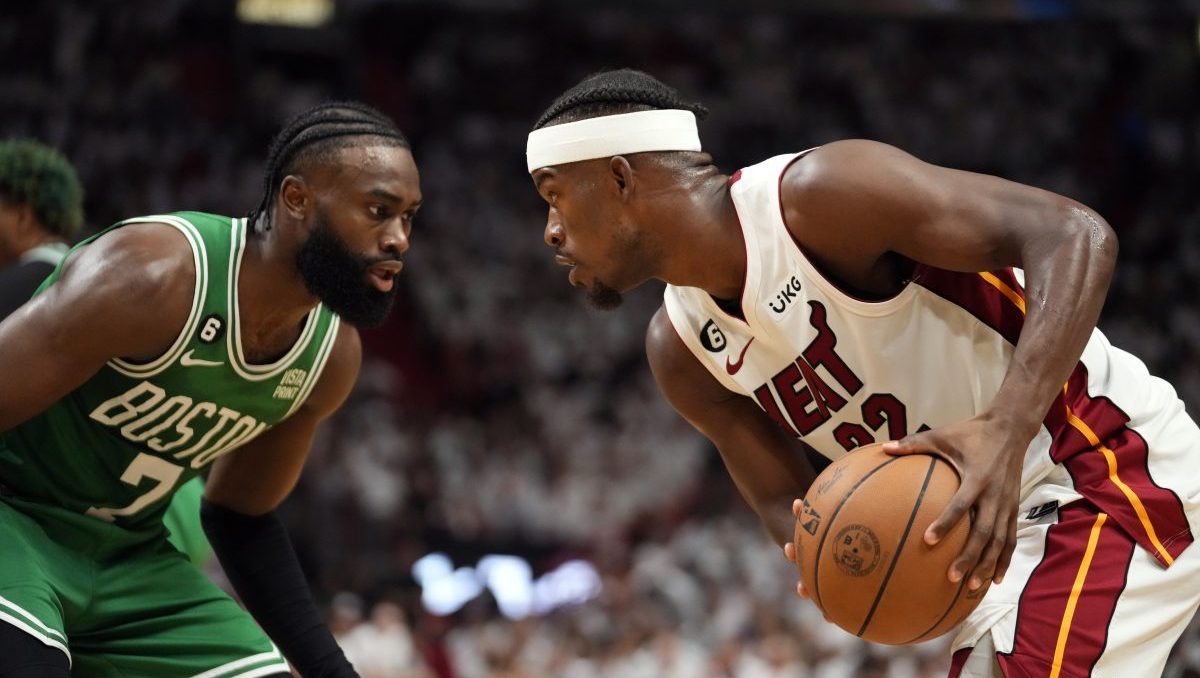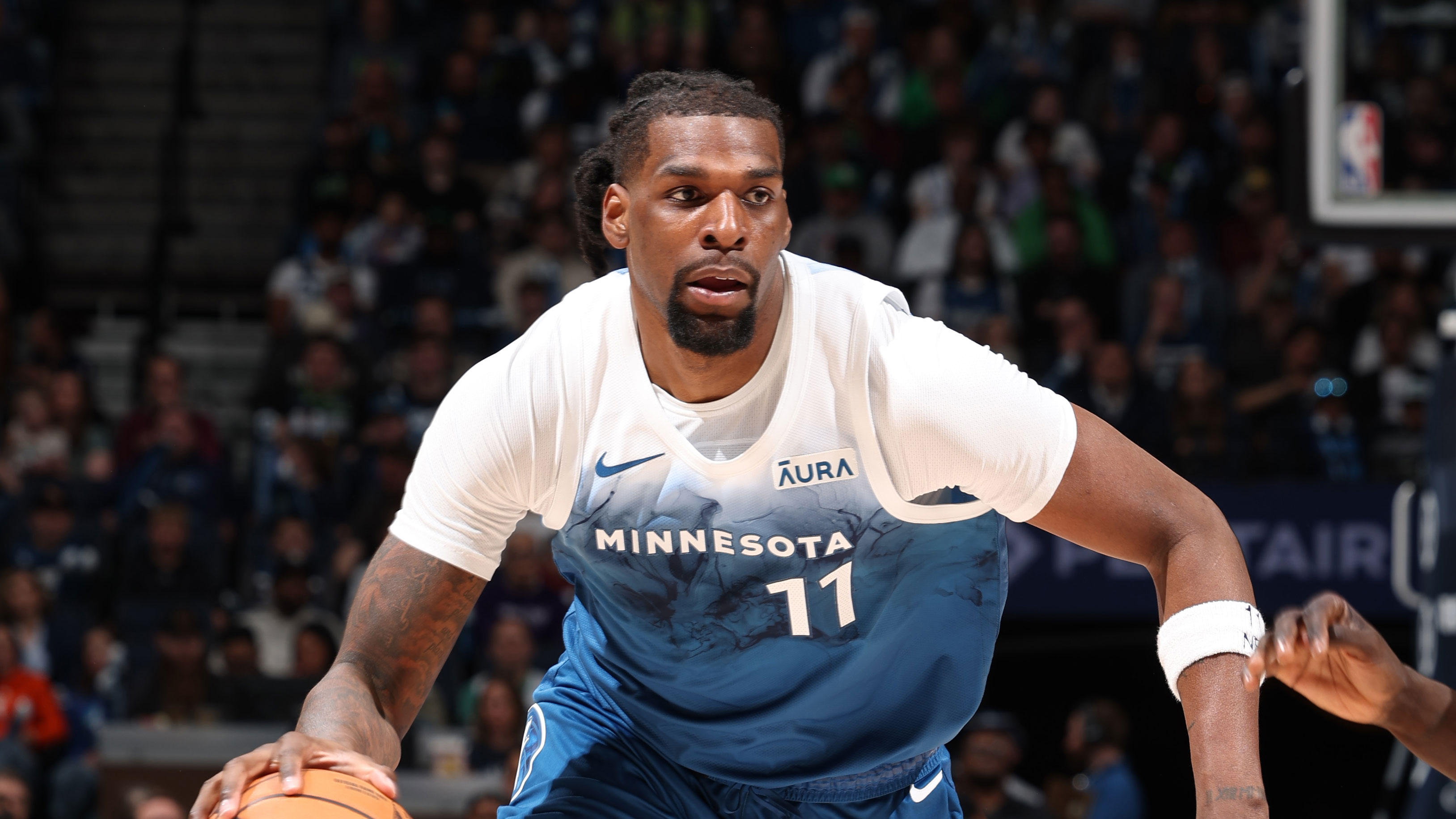It’s funny how life can work.
Growing up in a large, sports-crazed family near Baltimore, Nuggets president of basketball operations Tim Connelly obsessively watched Big East games, occasionally noticing a certain Seton Hall forward named Arturas Karnisovas.
Many years later, after Connelly had made Karnisovas one of his first hires for his Nuggets front office, the two friends and their wives traveled to Lithuania for a wedding.
“Arturas was walking around like he’s Scottie Pippen. The reverence for him and excitement of the people throughout the country was amazing. And he was almost embarrassed by it,” Connelly said in a phone interview. “As some people progress, you can see them take on different personalities. What I really respect about Arturas is he has never changed.”
Connelly obviously didn’t know Karnisovas personally as he watched him ply his trade for P.J. Carlesimo at Seton Hall. But the same characteristics that defined Karnisovas’ playing career — humility, hard work and adaptability — are what attracted Connelly to hire him away from the Rockets.
“I joke with him all the time: I’m wild and free-spirited in my world view. He’s a little more buttoned up. But we both value loyalty and quietly doing your job, coming to work every day and trying to hammer away at issues,” Connelly said. “Arturas hasn’t been self-promotional. He doesn’t throw his name out there for every job. He’s not trying to work back channels.
“I think this process leading him to the Bulls was really neat because it was reflective of who he is. He has strong beliefs and views but also can say, ‘I’m malleable and want to be collaborative.’ He’s comfortable in his own skin enough to know he doesn’t have all the answers and the more smart people he has around him, the better.”
NBA
The Bulls hired Karnisovas as just the third executive vice president of basketball operations since Jerry Reinsdorf led a group of investors to purchase the franchise in 1985. Following the hires of Jerry Krause and John Paxson, it marked the first time the Bulls went outside their franchise to tab their leading man.
And it also represented team president and chief operating officer Michael Reinsdorf’s first major foray into basketball operations as he spearheaded the search. Early and often, Michael Reinsdorf said, Karnisovas’ name kept coming up in conversations as he sought input.
“We’re so excited,” Connelly said. “It was an organizational effort to help spread the word to just how good he is. He’s been involved in other jobs. But this is not just a job. It’s one of the jobs. It’s an iconic franchise.
“Getting to know their ownership group and developing that relationship, it was a dream job from the outside. He got a better sense of what the job entailed and we were able to stump for him a little bit and campaign for him. We thought it was a perfect match. It’s sweet because it’s recognition of all the hard work he has put in. We joke he’s wearing a different jersey. But we’re still family. And thank god he’s in the East.”
It’s funny how life can work.
Kim Bohuny is the NBA’s senior vice president for international basketball operations. While working on the Goodwill Games for Turner Broadcasting in 1986, she got to know future NBA players Sarunas Marciulionis and Arvydas Sabonis.
One day, Marciulionis pulled her aside.
“Sarunas knew that there was trouble brewing in the former Soviet Union,” Bohuny said by phone. “He said, ‘Look, we have this young player who I think is going to be our next big star from our country. I was hoping you could help him get out and go to college in the States. Because if he stays behind, I worry about his career.’”
Bohuny happened to know Seton Hall coach P.J. Carlesimo from their shared New Jersey roots. After meeting Karnisovas on his trip to Atlanta with the Soviet junior national team in 1987, she arrived in Moscow in 1988 on a cold, snowy night with Carlesimo’s blessing.
Bohuny met Karnisovas’ father, Mykolas, who played professional basketball himself. With the help of a translator to aid Bohuny’s limited Russian, they formulated a plan for Arturas to escape the Cold War and become the first Soviet-born player to play college basketball in the States.
For three agonizing days in 1989, Karnisovas waited for the KGB to sign off on the plan. When they did, Karnisovas never looked back.
“He had been studying some English on his own. But the minute he came over, he was so determined to make it here. He was living with a Lithunian family. He basically learned English off TV, off game shows and things like that. He was able to pass all the exams to get into Seton Hall,” Bohuny said. “Living in those times in the former Soviet Union makes you stronger. Knowing that your future is so uncertain makes you appreciative of every moment and opportunity that presents itself. Because you may not get another. That probably helped drive him to be the student-athlete he was.”
After his storied Seton Hall career in which he started on four NCAA Tournament teams and earned All-Academic honors, Karnisovas experienced rare failure. His dream to play in the NBA ended when he went undrafted and was one of the Bucks’ last cuts in training camp.
But remember Connelly’s call about Karnisovas’ adaptability?
All he did was carve out an incredibly decorated European career, playing for storied, powerhouse programs like FC Barcelona with Pau Gasol and Greece’s Olympiacos Piraeus. He won FIBA’s European Player of the Year in 1996 and helped Lithuania to consecutive Olympic bronze medals in 1992 and 1996 after his home country gained its independence.
“His life story is as unique as any in our industry,” Connelly said.
It’s funny how life can work.
Shortly after retiring, Karnisovas began working at a financial firm in New York that had international responsibilities. He attended the 2002 FIBA World Championships in Indianapolis and connected with Bohuny, by now a close family friend.
Bohuny had moved into her current role with the league office in international basketball operations.
“At the world championships in Indy, he expressed how much he missed the game and how much he wanted to get back in it,” Bohuny said. “He was trying to figure out which capacity. He was a perfect fit for my department.
“He grew up in the European system. He played for the national team and understood what it took to participate in FIBA and international competitions. He spoke multiple languages.”
For five years from 2003 to 2008, working on programs as varied as grass roots to elite, Karnisovas traveled the globe, helping international players. He worked with Basketball Without Borders, FIBA and the league’s global developmental and community outreach program, and assisted players headed to the NBA with assimilation.
“He had walked in their shoes. He knew exactly what they were going through as they made this transition to America,” Bohuny said. “And he was always trying to learn about the responsibilities of all the other departments. He left the league office with a better understanding of how the league works.”
Connelly first met Karnisovas when Karnisovas worked for the league office. They’d see each other on international trips and, according to Connelly, saw players similarly.
Karnisovas left the league office to work for the Rockets as an international scout. He also ran adidas Eurocamp, basically the European version of the NBA draft combine.
Connelly worked for front offices in Washington and New Orleans before landing his dream job in Denver. He immediately hired Karnisovas.
“I can be all over the place and kind of dreamy. But I struggle with details. AK is so bright and such a fantastic executioner of plans. He’s so organized and so pointed in his approach,” Connelly said. “That helped us in Denver.
“We do have similar approaches to the players we like. When we’re in a meeting, we purposely won’t speak. And we’ll speak afterwards and be shocked at how many times our views of a player mesh.”
Bohuny also noted this attention to detail when Karnisovas worked for the league office.
“He looks at things at both a macro and micro level. I think often you’ll find people look at projects one way or the other. But he saw the big picture to grow the game globally but also wanted to make sure everything was done perfectly in the execution of our camps, clinics, meetings. It was such a tremendous help,” Bohuny said. “If he was working on something, I never had to worry.”
Both Bohuny and Connelly talked about how much of a family man Karnisovas is. He married his college sweetheart and they have two sons. They also added context to Karnisovas’ reputation as stoic and reserved.
“He comes across as very serious. But he can be very funny,” Bohuny said. “He’s very serious about responsibilities that are given to him. He’s driven, with a terrific work ethic. He’s very organized.
“He’s comfortable in his own skin because he’s confident in his abilities. He’s very humble even with all his successes and maybe a little on the quiet side, especially with people he maybe doesn’t know. But he’s got a lighter side too. He’s always the same person, always trying to do the right thing.”
It’s funny how life can work.
Karnisovas used to run out of a garage in New Jersey to "Sirius," the anthemic music behind the Bulls' starting lineup introductions, pretending to be a Bull. After fouling out of the Lithuania-USA game at the 1992 Barcelona Olympics, he unapologetically took pictures from the bench of the Dream Team.
And in 1997, he played against Michael Jordan, Pippen and the Bulls at the McDonald’s Open in Paris while a member of Olympiacos.
Now, after being in the running for other top jobs, he has landed the Bulls’ job. Which just so happens to be in the city where more Lithuanians live than any other place outside the country.
“It’s amazing,” Karnisovas said. “If my story doesn’t represent the American dream, I don’t know what does.”
Karnisovas is asked how leaving Lithuania by himself at such a young age to be a trailblazer and then returning to a free country shaped him, perhaps even foreshadowing his leadership role.
“I came when I was 18, speaking no English. I didn’t know if I’d be able to go to college. Obviously, that dream came true. I got my education,” Karnisovas said. “It’s hard to believe what’s happening right now for me. There’s a huge population of Lithuanians in the city of Chicago. I think it’s close to 100,000. It’s the biggest number of Lithuanians outside of Lithuania living in one place.
“It’s still surreal for me. I’ve done a lot of work prior to getting this job that complemented me and gave me the skills I need to build this organization. I have a long history of passion for this team and organization. To put an impact on building this team is a great opportunity for me.’’
SUBSCRIBE: Apple/iPhone | Google Podcasts | Spotify | Art 19
Click here to download the new MyTeams App by NBC Sports! Receive comprehensive coverage of your teams and stream the Bulls easily on your device.


